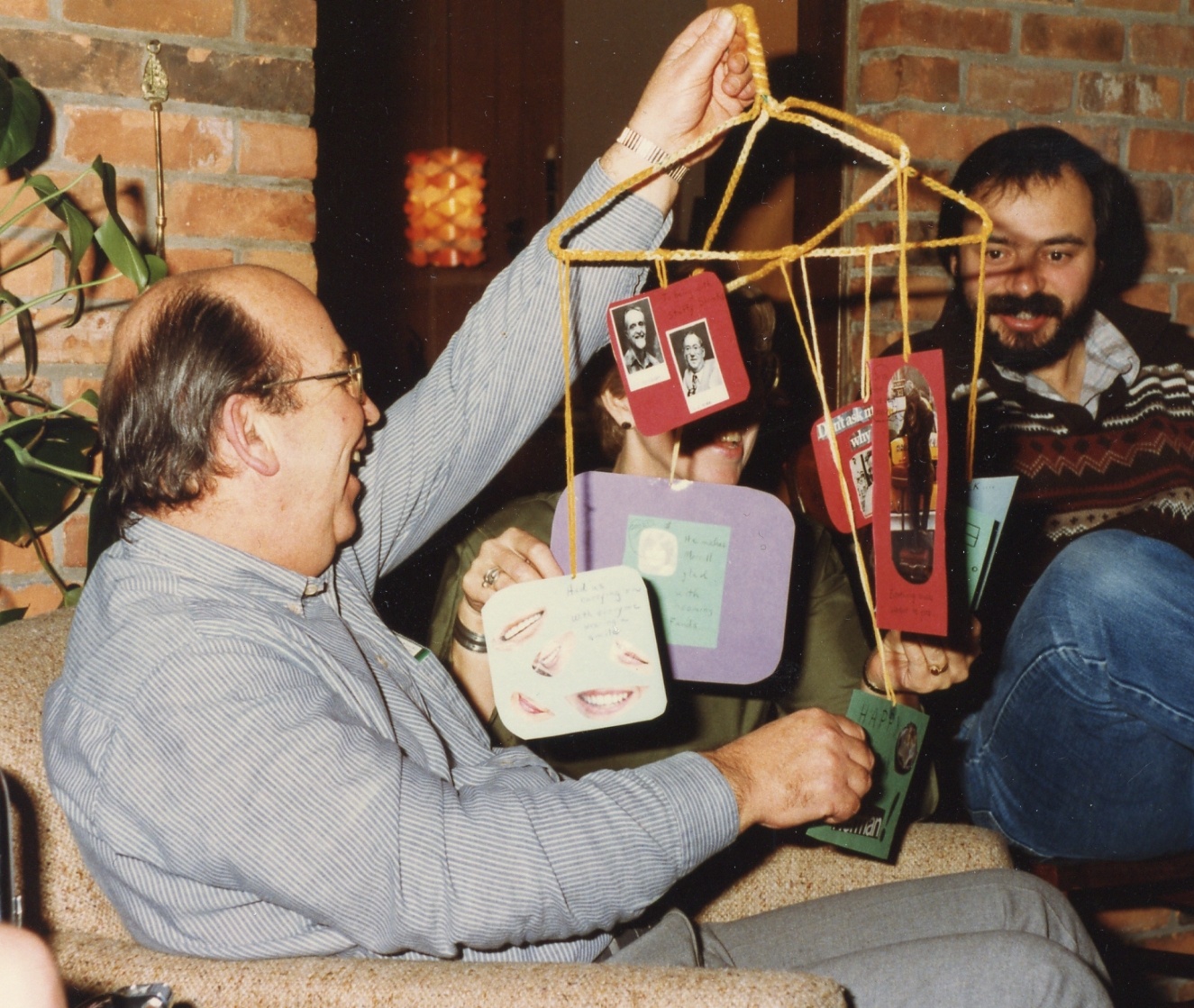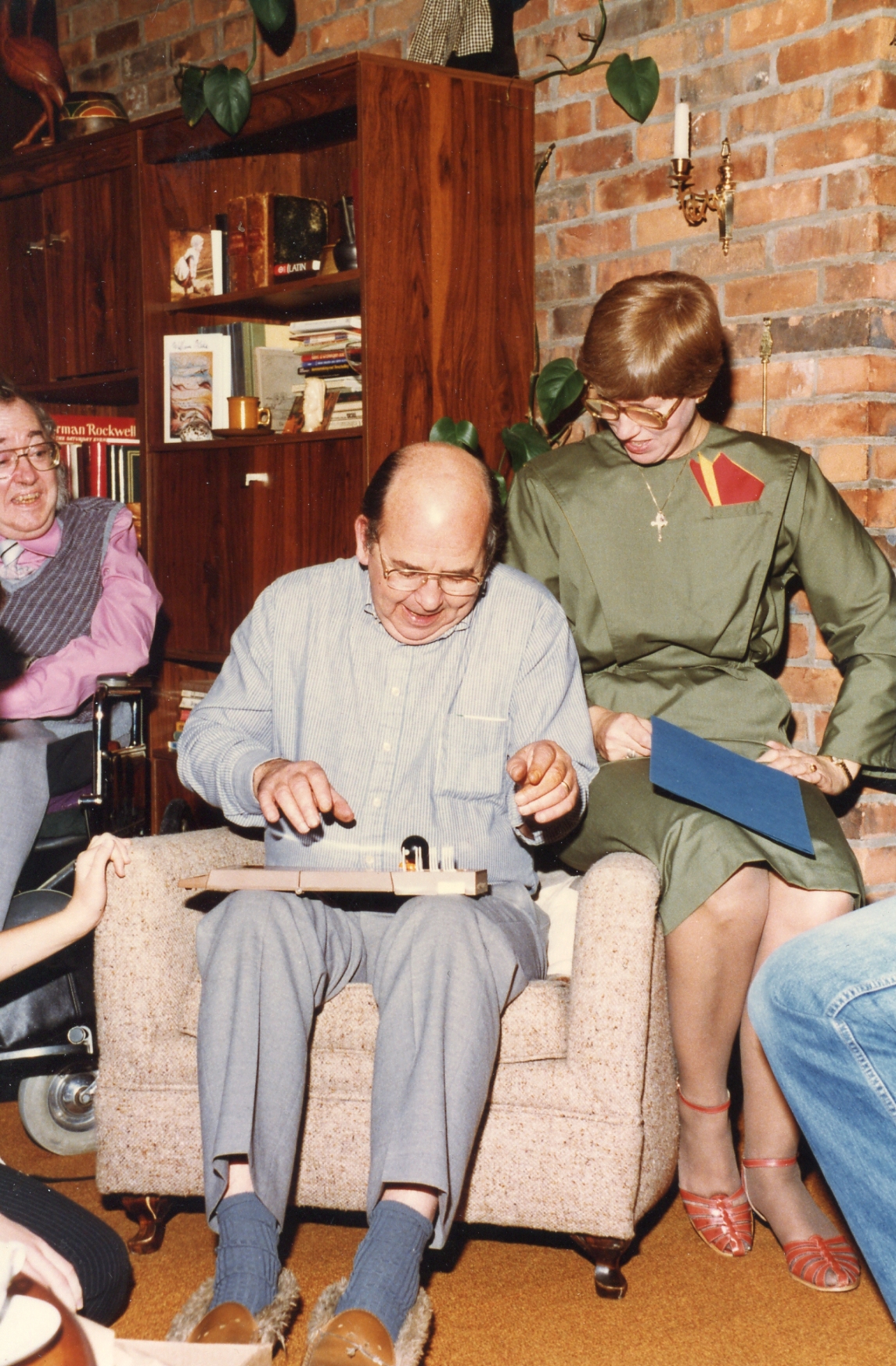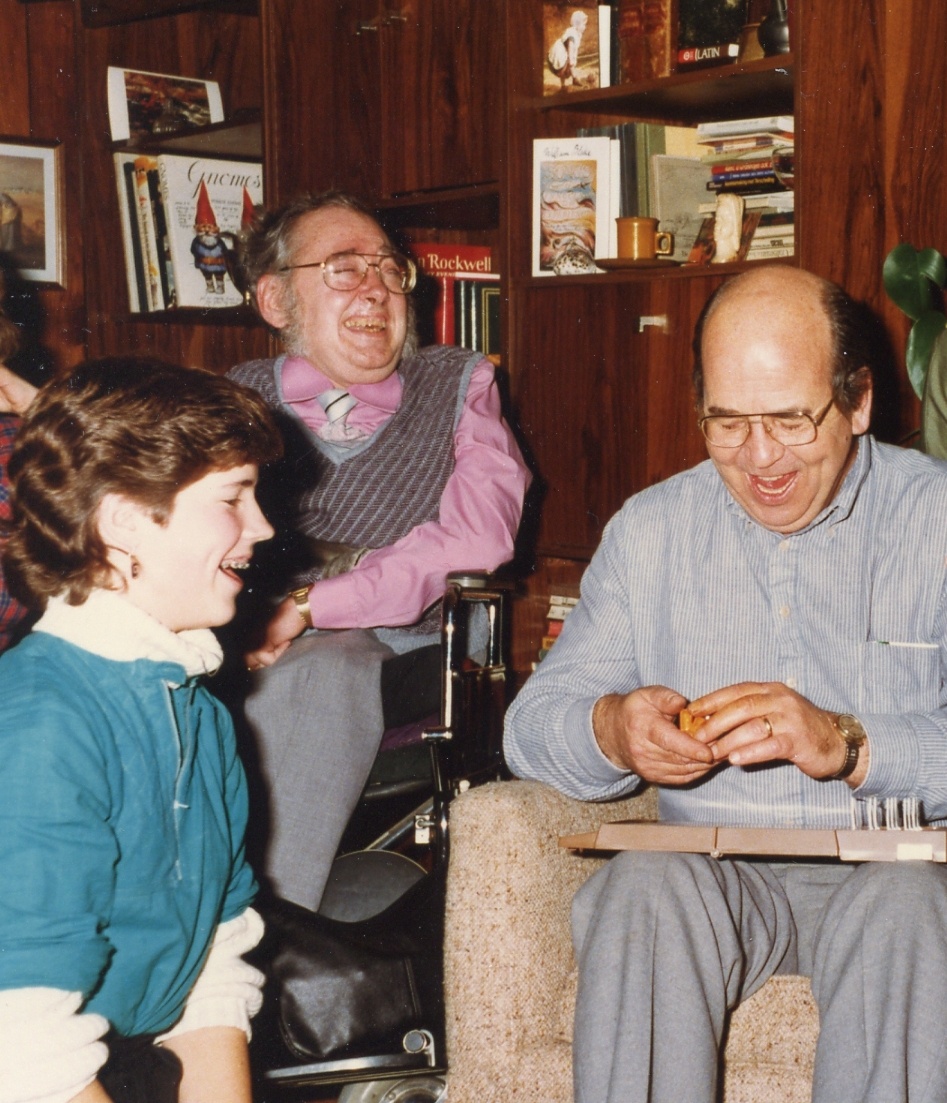
Sense's Reminiscences
by Sense de Jong
Herman de Jong
by Bert Witvoet
- Geurt
- Tante Betje (by Sense)
- Tante Betje (by Truus)
- Miss Roozendaal
- Concert in Winschoten
- A baptism remembered
- My birdhouse
- War veterans
- Henk Smit - bass/baritone
- Stefan
- In memory of Herman - I
- In memory of Herman -II
- Remembering AK
- Our love for music
- Herman - Promoter of Christian Causes
- A Salem evening with Herman de Jong
- From Elsinore to Monschau
- A Danish Treat
- Glimpses of Thuringia and Saxony
- Domie and Hansie
- La Manche, Newfoundland
- Bermuda - Isle in the Sun
- 1932 and 1934
- 1940 - 1945
- Winschoten, Grace on the Venne
- 1948
- Johann Sebastian Bach
- From Generation to Generation
- Seven children and a harmonium
- K.P. - A Man of Enterprise
- Cuba and the tragedy of the MS St Louis
- It all began in Norwich, Ontario
Another site by Sense de Jong:
~ Hinne de Jong ~
A Chronicle
Sites by Henry de Jong:
~ Herman de Jong ~
Memorial
~ Newmaker Notes~
Writings, Pictures, Collections
~ AACS/ICS Niagara Conferences~
1970 - 1991
Note: This article appeared in the October 8, 1982 issue of Calvinist Contact.
Salem Christian Mental Health Association made itself quite a catch when a year ago (1981) it hired Herman de Jong as its Development Director. Mr de Jong has an illustrious and checkered career behind him as teacher in the Sarnia Christian School (5 years), organist and music supervisor of the Goderich Presbyterian Church (4 years), vice-principal and teacher of Sarnia Christian School (4 years), and furniture upholsterer and renovator (10 years). He and his wife Stiny have 7 children ranging from 13 to 26. Now at age 50, he has become a grandfather, which makes one wonder how appropriate his surname is.



To be development director requires that a person is gregarious and organized. From what I know of Herman and from what I see him do as Development Director, I must say that he qualifies on both counts. As a matter of fact, his development plans include a series of evening programs that are so unique in their display of organized gregariousness that other organizations must be watering at the mouth of sheer jealousy.
Starting October 12 in the Grimsby Christian Reformed Church, Herman de Jong is launching a series of promotional meetings that he has called "A Salem Evening with Herman de Jong." Now if the reader expects these evenings to be just more the same - dry accounts of organizational successes - he or she is in for a surprise.
One of the rationals for the evening is explained as follows: "To provide local congregations with good Christian evenings of fellowship." To accomplish this, Mr. de Jong will recite poetry he has written himself, use his musical talents to lead the group in singing, and provide a general atmosphere of joyful servant-hood."
I have listened to a tape on which Herman reads verse that deals with anger, greed, irresponsibility, faith, materialism, fear, the lack of Christian lifestyle, and I must say that I was greatly entertained and edified by his sensitive and dramatic readings. Especially his reflections on Cain, I found moving and spellbinding. Mr. de Jong revives an old oral tradition when he uses dramatic reading of poetry as means of drawing people into fellowship.
I am apparently not alone in my admiration for this man's unusual (for our times) approach to public relations and promotion. Henk Baron, Professor of English at Calvin College (Grand Rapids), also listened to a tape of de Jong's readings and writes, "you have an eye and ear for detail I find enviable. If Bible stories and concepts become jaded from sheer repetition and unimaginative presentation, your approach makes them fresh again and thereby releases their power to make an impact or yield an insight. I think your idea of integrating education/edification/entertainment with promotion is a marvellously good one. Audiences will experience not only enjoyment but inspiration as well. And thus your programs should prove a blessing to all, including Salem."
And then there is Stan Wiersma, also Professor of English, known to many of us (as Sietze Buning - sdj) for his own talents as a folklore writer and teller. Mr. Wiersma goes into some detail explaining the tradition Mr. de Jong's approach comes out of: "Mr. Herman de Jong's presentation is as pure an example of the Dutch tradition of folk rhetoric as exists in English. We who have been brought up in that tradition have memories of eloquent prayers before and after meals, of Bible reading before the closing prayer at which mother would brush away tears for Joseph's reunion with his father, or an uncle choke up reading Psalm 84, and of discussions after the Bible reading and before the concluding prayer. Those discussions were optional, though the prayers and Bible reading were mandatory; Mr. de Jong's presentation puts me in mind of those discussions.
"Those discussions were not quite formal theology (although theological positions were taken and argued); not quite literary criticism (although the motivations of Biblical characters and the relationships between narrative parts and whole were matters of concern - questions like, 'Why is it important that Cain was a farmer and Abel a shepherd?'); not quite testimony time (because nobody said in so many words 'I just want to say I love the Lord tonight,' although the love of the Lord was there); and not quite open-ended visiting either because the talk always settled on the scripture just read. Theology, literary criticism, testimony and ordinary visiting: it is an ethos impossible to define entirely. Some of us catch echoes of this folk rhetoric in the writings of Peter de Vries and Frederick Manfred, but in both it is amalgamated with the mainstream of American literature. In de Jong one finds this tradition pure."
There you have it - pure Dutch tradition of folk rhetoric in English. Somehow I think while listening to the tape that it's also pure de Jong.
With all this emphasis on folklore and poetry, you may wonder if a Salem evening with de Jong should not be called "A de Jong Evening with Salem."
The event themselves will prove that the needs of Salem will receive adequate attention. The purpose of the evening will, of course, remain the promotion of Salem. But since ordinary promotion meetings tend to draw no more than 20 people to a meeting, Herman de Jong decided to use some of his "dormant and not so dormant talents" to increase that average significantly. In a year when Salem is expanding, that aim is not only lofty and admirable, but essential.
A Salem evening with Herman de Jong - leave your dishes in the sink and the paintbrush on the ladder and listen to de Jong as he imagines how a man who lived so close to paradise as did Cain, could kill his brother Abel. Or why de Jong himself was angry when his son first refused to lift a battery out of the car, but not angry when this son dropped the battery and cracked it…he was only forlorn: another $60 down the drain.
A Salem evening with de Jong. It's good for your mental health.
[an error occurred while processing this directive]